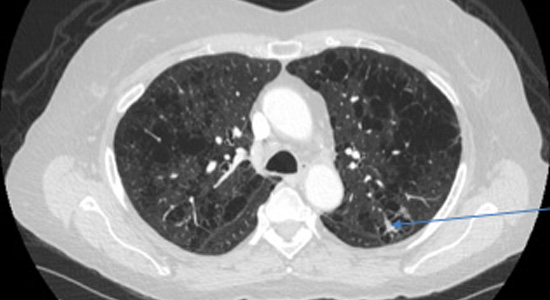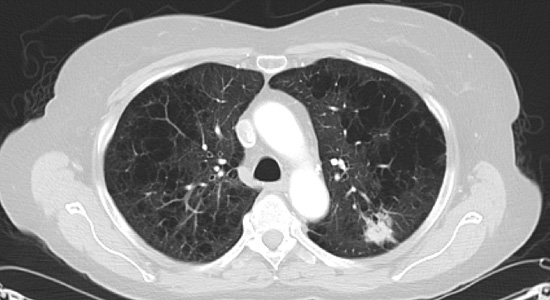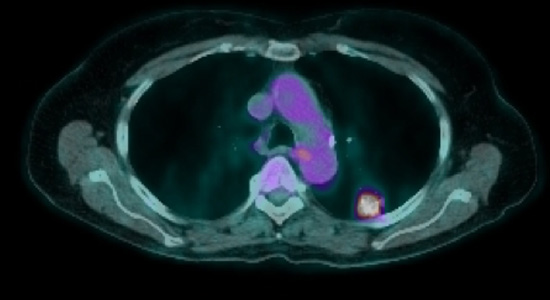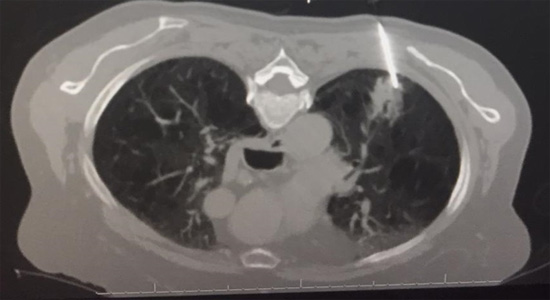
Fig (1). A CT scan showing a small area of abnormality, of uncertain significance.

Fig (2). After a period of observation, the abnormal area has become suspicious, with features of cancer.

Fig (3). A PET scan shows that the lesion “lights up”, making it highly suspicious for lung cancer.

Fig (4) A biopsy procedure is being performed by introducing a sampling needle into the lesion under CT guidance.
What is the cost of lung cancer screening ?
Unfortunately, there is no medical insurance company which covers the cost of a lung cancer screening programme in the UK at the present time, so a financial commitment is also involved. The cost a screening CT scan at the present time is £542, in addition to consultation appointments as needed. It is normally recommended to continue screening for 15 years after quitting of cigarettes. Of course, if we discover any abnormality on any of these scans, then further investigation of this specific abnormality is covered by insurers and / or the NHS.
Wouldn’t it better if everyone was screened ?
Lung cancer screening is recommended only for those at higher risk of lung cancer because the minor downsides discussed above are only justified in those at risk. We would not wish to subject those who are at low risk to the expense, trouble or worry of screening and there are no studies showing benefit of doing so.
Does lung cancer screening mean that I will never die of lung cancer ?
Those at higher risk of lung cancer who undergo screening reduce their risk of dying from lung cancer by 25% in comparison to those who do not. Unfortunately though, there are some people who may develop aggressive cancer which is already beyond cure when identified, despite regular monitoring.
How do I start ?
If you are interested in screening for lung cancer, please contact us for an appointment at which we can discuss all aspects of your respiratory health and the details of the programme. You can email info@guildfordrespiratory.co.uk or call on 01483 555800 ext 5297 or 07495 261 587.

